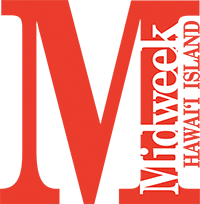Investing in Community
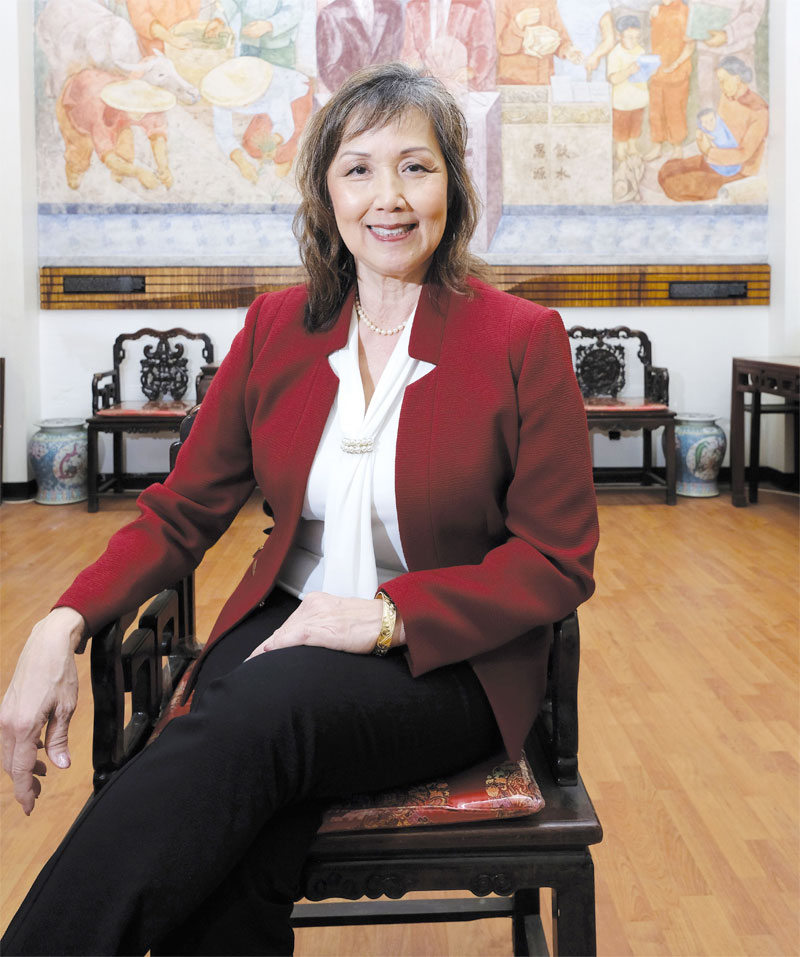
As president of the United Chinese Society of Hawai‘i and regional manager of HomeStreet Bank Hawai‘i, Mona Choy is mentoring the next generation of leaders. LAWRENCE TABUDLO PHOTO
Mona Choy may not be a public figure — she’s not a politician, celebrity or superstar athlete — but within the local Chinese and business communities, she has made a name for herself as a leader and a mentor.
As the 2016 president of the Chinese Chamber of Commerce of Hawai‘i, she led the organization that sponsors the annual Narcissus Queen Pageant and Lunar New Year celebration.
“We also do the Chinatown Cleanup,” she says. “This will be our fourth year. The last three years I think we had 200 to 300 people come out to clean. This past August we did beautiful murals in China-town to support the people of Maui.”
In 2017, with help from a U.S. Small Business Administration grant, she and several other women leaders founded the Patsy T. Mink Center for Business & Leadership at the Honolulu YWCA to give women in business the resources to succeed.
“The biggest thing to come out of that, which is still going on, is we created a fellowship program (the Patsy T. Mink Leadership Alliance),” she says. “It’s an annual program where women in business can apply and they’re provided with educational training and a huge number of courses.”
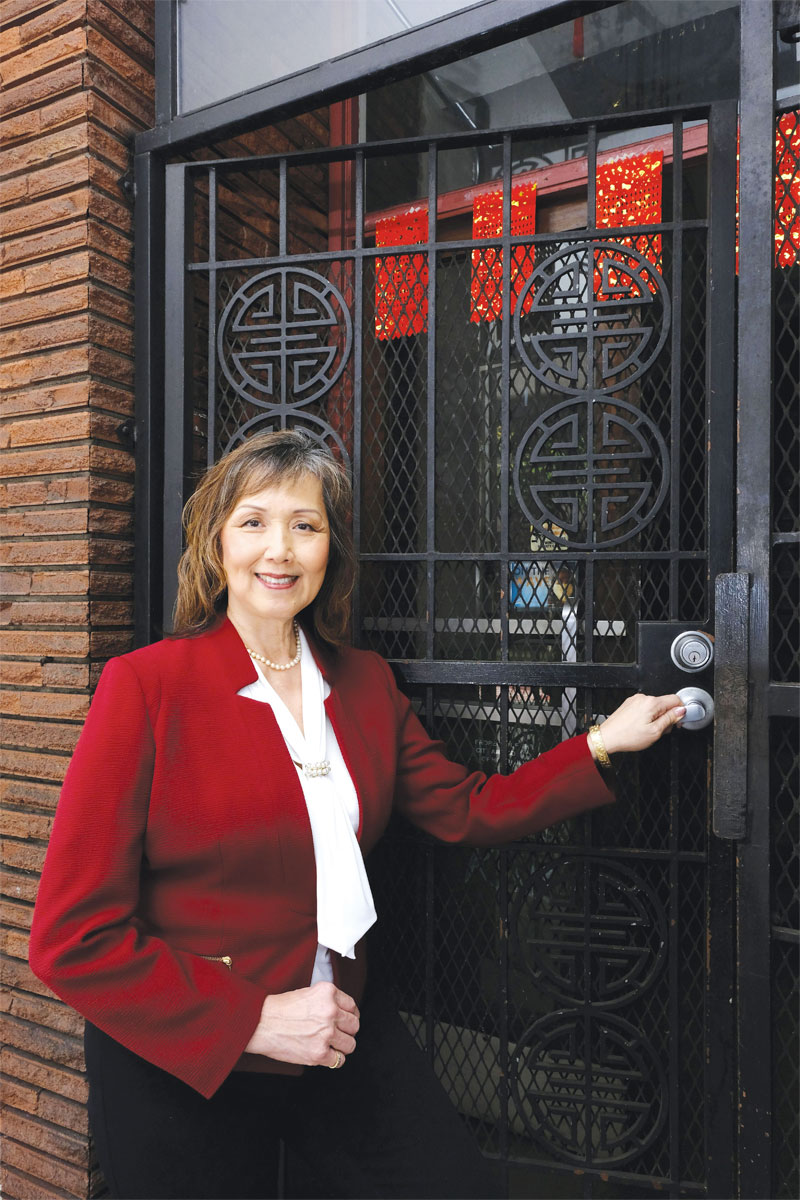
As president of the United Chinese Society of Hawai‘i and regional manager of HomeStreet Bank Hawai‘i, Mona Choy is mentoring the next generation of leaders. LAWRENCE TABUDLO PHOTO
This year, Choy becomes one of only a handful of women to lead the United Chinese Society, an umbrella organization that has roots going back to the 19th century.
“This is still a man’s club so it’s a significant milestone for our Chinese organizations to have more and more women leaders,” she says. “It is something I’m strongly advocating for. We need more women in these organizations. We’re doing a lot better, it’s just that there’s a glass ceiling and we have to break through it every
Breaking through barriers is nothing new to Choy. As the senior vice president and regional manager for HomeStreet Bank in Hawai‘i, she’s responsible for leading the company’s retail banking operations in the Aloha State.
“At HomeStreet, I’m the only leadership in Hawai‘i,” she says. “All of our corporate team is in Seattle, so there’s no one higher than me.
“In other words, I have to do everything here because we don’t have marketing here, we don’t have corporate facilities here. I manage the facilities, I manage the marketing, I manage everything.
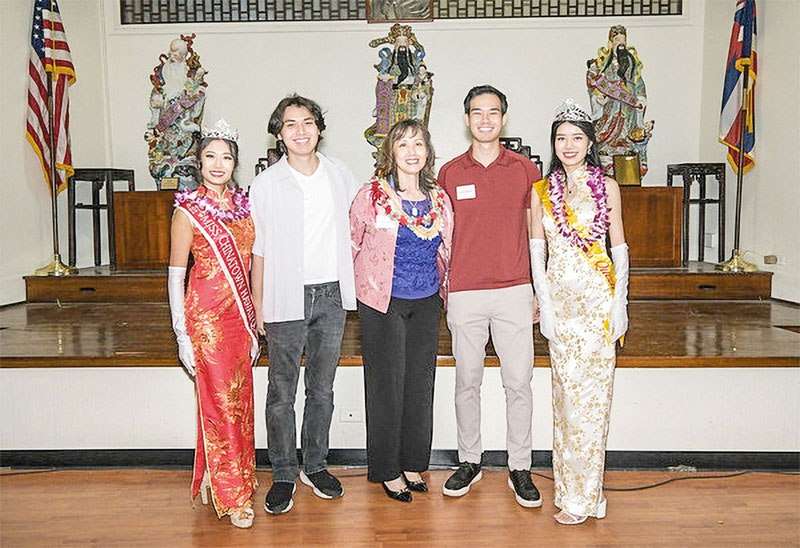
Mona Choy (center) with her sons, Nikolai (second from left) and Pallas Beddow, at the United Chinese Society of Hawai‘i’s New Year’s Tea Reception. At left is 2024 Miss Chinatown Sarah Liu and at right is 2024 Narcissus Queen Shuyao Ye. PHOTO COURTESY MONA CHOY
“I open branches where I think it’s good for the company and I’m fortunate to have very supportive management in Seattle, so I’ve been able to grow Hawai‘i business significantly.”
She leads a small but mighty team of about 25 at HomeStreet Hawai‘i. Thanks to their work, she says all of the state’s HomeStreet branches were ranked among the top within the company in 2023.
She’s also grateful the bank supports community outreach by donating to local nonprofits, including the Honolulu YMCA and the Patsy T. Mink Center for Business & Leadership. HomeStreet Bank Hawai‘i offers grants for women to attend the Patsy T. Mink Leadership Alliance.
“What’s really good about this (alliance) is that you have young women leaders who come from the nonprofit and for-profit sectors and they become a sisterhood,” Choy says. “I know that years after they graduate, they are still connected.”
Choy spent her early childhood in Macau before emigrating to Hawai‘i — where her parents had opened a restaurant — in 1975.
The Roosevelt High School alumna took a part-time teller position at Bank of Hawai‘i in 1983, but her heart was in fashion.
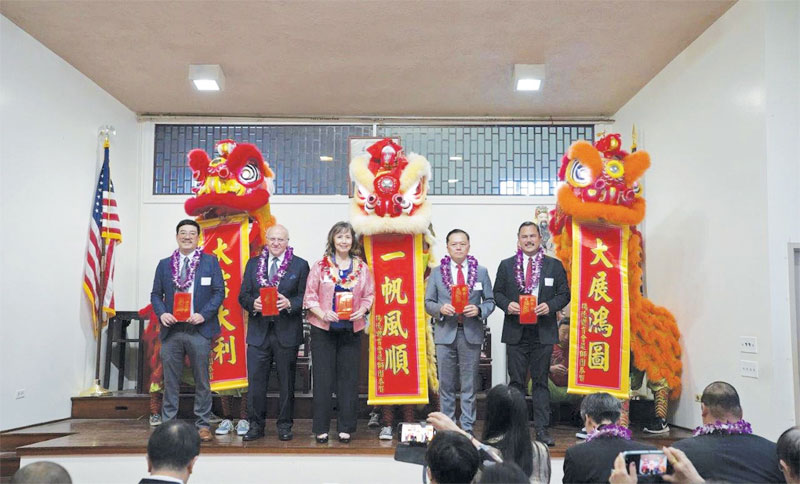
State Rep. Daniel Holt, Mayor Rick Blangiardi, Choy, director general Richard Lin of the Taipei Economic and Cultural O~ ce in Honolulu, and City Councilmember Tyler Dos Santos-Tam pose for a photo. PHOTO COURTESY MONA CHOY
“My dream was to be part of the retail fashion industry,” she says.
She studied fashion merchandising and design at University of Hawai‘i at Mānoa before transferring to Kapi‘olani Community College and graduating with a liberal arts degree.
She also found employment at the China Friendship Store on the fourth floor of the Royal Hawaiian Shopping Center. The emporium, which has since closed, was known for importing goods from China — everything from clothes and accessories to furniture and art.
“But my mentor at Bank of Hawai‘i, she was a woman leader and back then there were not a lot of women leaders and managers in banking, but she was one of them and she kept encouraging me and telling me, ‘Mona, you should learn more about banking. It’s such a significant position and business,’” Choy recalls.
“So when a full-time position opened up she told me to take it.
Then she encouraged me to take on a supervisor position. And you know, I’m really good at it and I guess she noticed that.”
Bank of Hawai‘i was also where Choy learned the value of community work.
“Bank of Hawai‘i is a huge supporter for our community. So, as an employee of Bank of Hawai‘i, we all learned the importance of giving back.”
It’s a lesson that stuck with her.
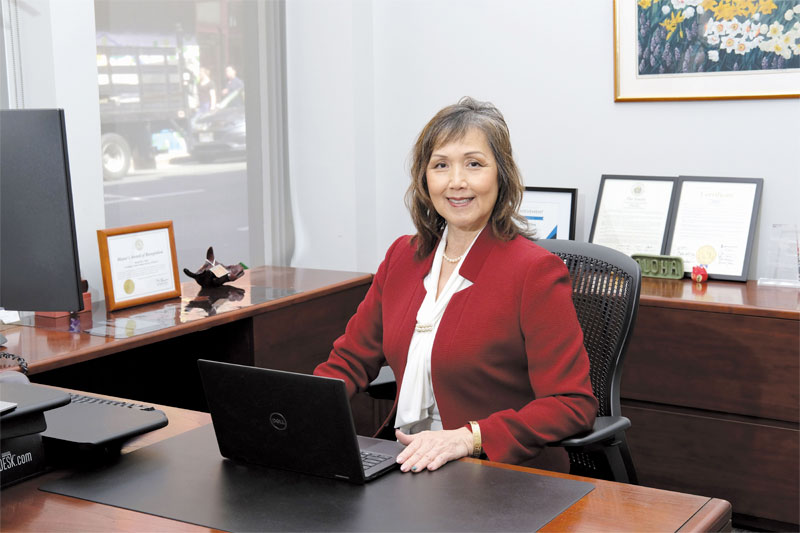
Choy in her office at HomeStreet Bank. As the bank’s senior vice president and regional manager for Hawai‘i, she oversees retail banking operations in the Aloha State. LAWRENCE TABUDLO PHOTO
As the new president of the United Chinese Society of Hawai‘i, Choy takes the helm of an organization with a long history in the islands. UCS marks its 140th anniversary this year.
According to the Chinese Historical Society of America, the first Chinese to arrive in Hawai‘i were crewmen aboard trading ships in the 1780s, some of whom opted to remain as new settlers.
In the early 1800s, Chinese entrepreneurs arrived with equipment to establish the first sugar mills in the islands, then branched out into rice farming, retail and restaurants. By the mid-19th century, sugar had become a major export and efforts were made to recruit more Chinese to come to Hawai‘i as laborers. By 1884, the islands were home to a sizable Chinese population from different parts of China and UCS was founded to unify those various groups.
Today, it is a nonprofit with hundreds of members from numerous academic, sports, social and civic clubs. The UCS Society Hall in Chinatown serves as a gathering spot for club events and meetings.
“We also have connections with the Chinese consulate in LA and we work closely with the Chinese consulate directly in Hawai‘i,” Choy adds. “So, if a member has something they need to reach out to Taiwan about, we are able to assist them.”
UCS is perhaps best known for its award ceremonies. Every year, it recognizes an individual who has made a positive difference in the community.
Last year it inducted dentist and philanthropist Dr. Lawrence Tseu into its Hall of Honor.
“I don’t know anybody who doesn’t know (Tseu),” Choy says. “He made so many donations to so many organizations, not just Chinese organizations.”
While her past experience has guided her commitment to community service, Choy is also looking ahead. “My vision will be reconnecting, not just with UCS but with the community in general,” she says. “We want to be out there to revitalize who we are and help our members.”
To that end, she has planned a series of UCS community workshops. The first, scheduled for Feb. 25, would provide information and tips for filing taxes. The tax season may already be underway but the deadline to file isn’t until April 15.
There are also plans to bring back the UCS Health Fair in April, host the UCS Family Day Picnic at Kapi‘olani Park in August and hold the Mid-Autumn Festival celebration in the fall.
“And I am going to be taking my members on a tour of Taiwan,” Choy adds. “This is still in the planning phase, but we are planning this overseas trip.”
However, she’s most excited about how she can support the next generation.
A slew of UCS workshops are geared toward giving up-and-coming leaders the skills they need to succeed so that they can take reins of the organization when the time comes.
“At UCS, our leadership is getting older,” Choy says. “Many of them are in their 70s, so if we want to perpetuate who we are, who we have been for our 140-year history, we have to look to the younger people.”
She’s also supporting UCS president-elect Ivy Yeung in launching a new NextGen Leadership and management program.
“Our hope is not just to provide leadership in their career paths,” Choy says. “We want members to learn about the Chinese culture. We think that it is so important that this new leadership coming up in our society be able to recognize their roots, who they are, who they were.”
